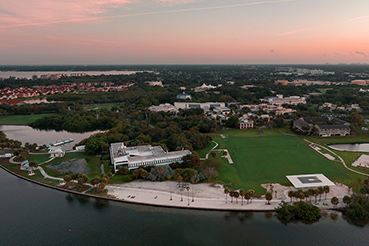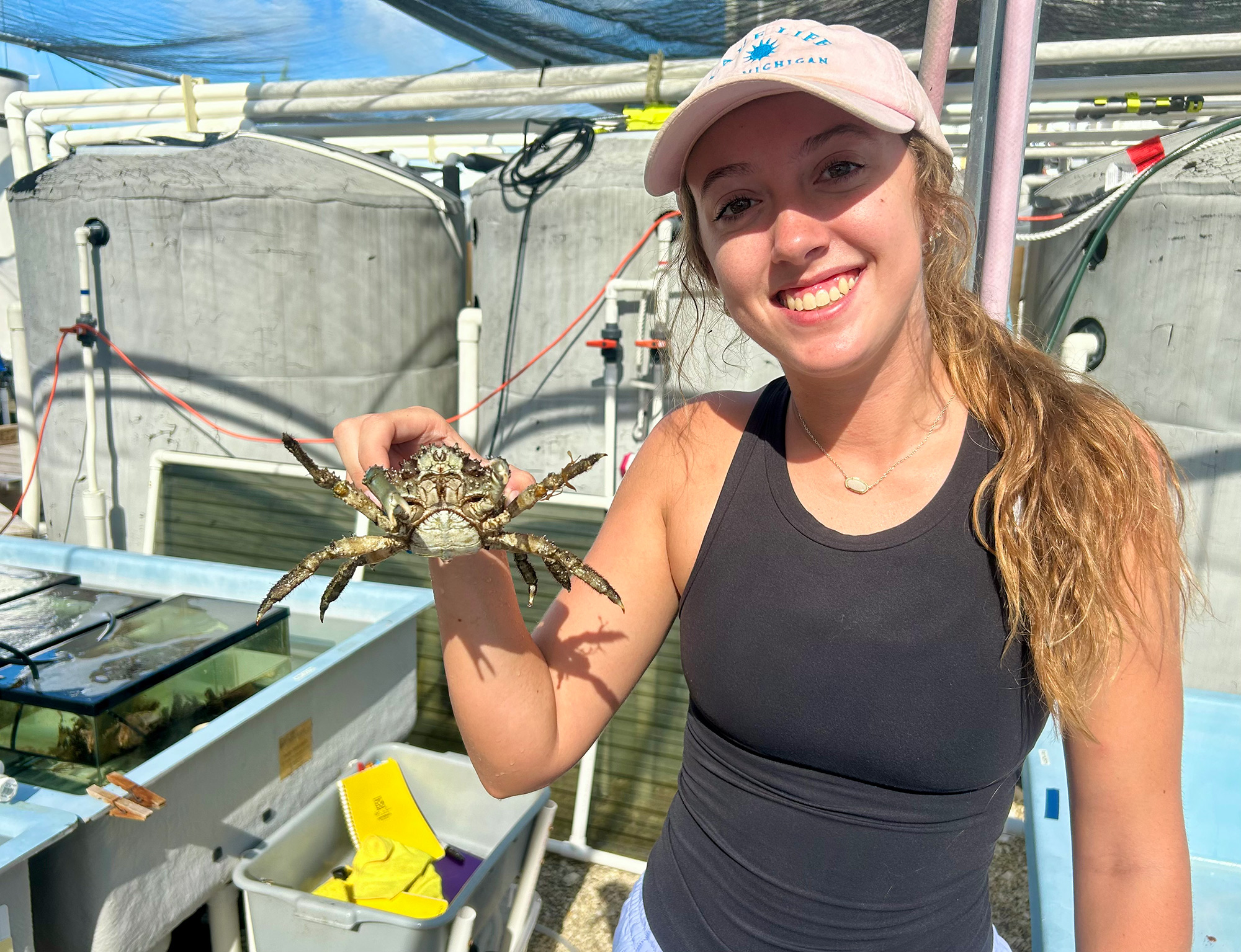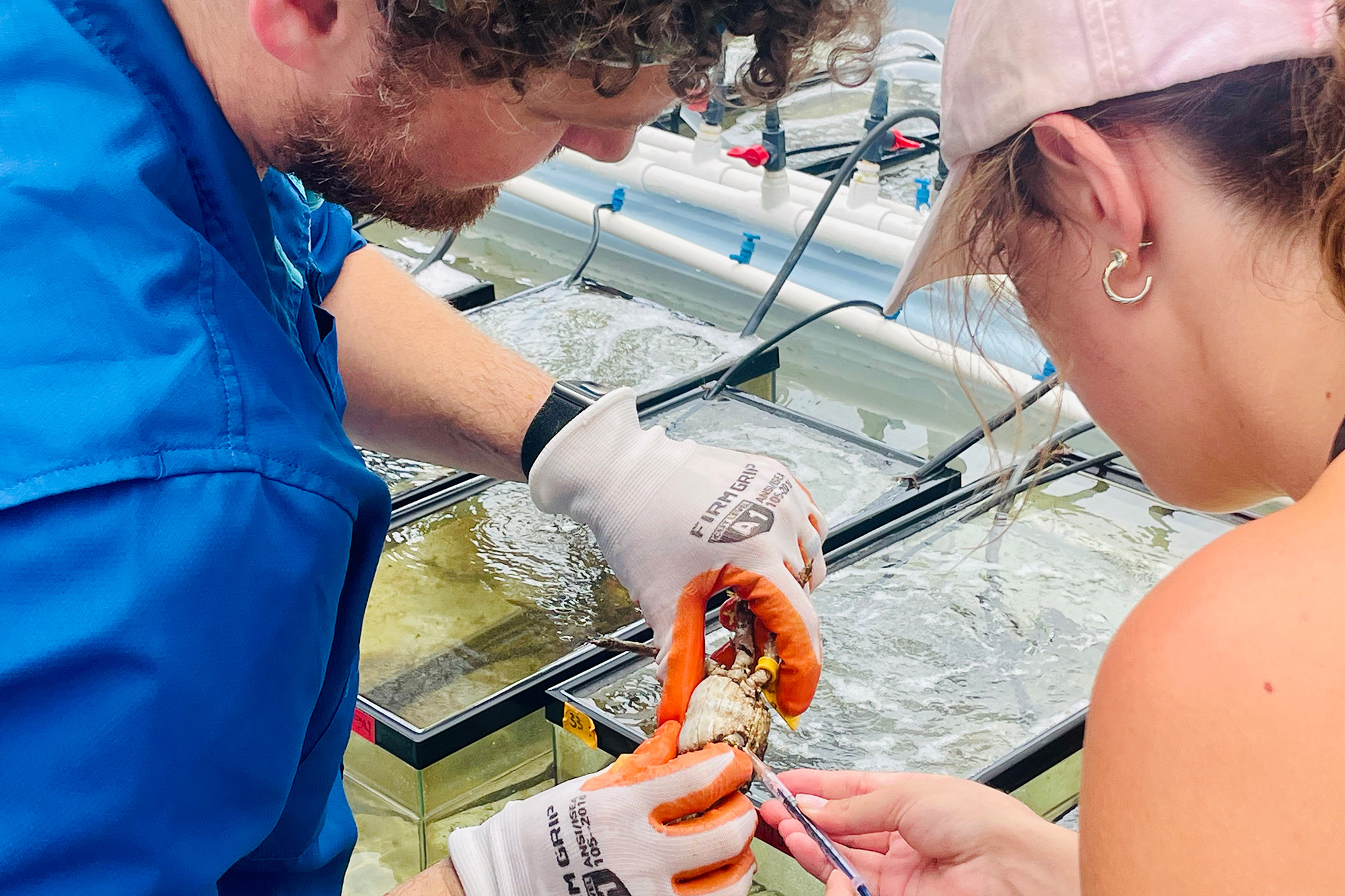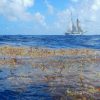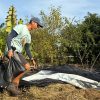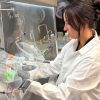Eckerd College sophomore Gillian Smith is returning to the Florida Keys this summer to perform research that could help save coral reefs, preserve the marine environment, and safeguard the multibillion-dollar fishing and tourist industries.
This time, however, she’ll bring along significant tools to the Mote Marine Laboratory’s Elizabeth Moore International Center for Coral Reef Research & Restoration. A marine science student from Indianola, Iowa, Gillian recently received a prestigious Sigma Xi Grant in Aid of Research to study how Caribbean king crabs react to warming oceans. Gillian’s grant, which is in the Climate Science category, is for $1,000 and will be used to buy supplies such as lactate meters, protein refractometers and syringes.
“Gillian is one of two undergraduate students in Florida to receive an award this funding cycle,” explains Philip Gravinese, Ph.D., the assistant professor of marine science who will again travel with Gillian and other Eckerd students to the Mote Marine facility this summer. “A total of 54 projects were funded this cycle—14 were undergraduate, and the rest were master’s or Ph.D. students.”
Founded in 1886, Sigma Xi is the international honor society of science and engineering. It is one of the oldest and largest scientific organizations in the world. More than 200 Nobel Prize winners have been Sigma Xi members. Gillian’s grant project title is “Do Caribbean king crabs have the ability to physiologically tolerate thermal stress?”
With ocean temperatures regularly reaching record highs and macroalgae growth choking coral reefs, scientists at the National Oceanic and Atmospheric Administration plan to introduce at least a million algae-eating Caribbean king crabs to the reefs. But before that happens, researchers need to know how well the crabs can tolerate the rising temperatures.
What’s important about this species, as opposed to the Florida stone crab, is that the dentition on the tips of a Caribbean king crab claw have evolved to be highly effective at harvesting macroalgae. The crabs basically act as lawnmowers on the reef, and their grazing activity can open up space for corals to settle. One of the consequences of warming seas is rampant algae growth, which can wipe out coral reefs.
“NOAA wants to put a million king crabs on the reefs to promote restoration,” Gravinese adds. “One might assume the crabs would be able to tolerate stressful conditions. But we don’t know that. That’s why Gillian is testing different thermal stressors on the crabs’ physiology.”
Gillian’s road to the Sigma Xi Grant began in 2021 on U.S. Highway 65 in central Iowa. A high school junior at the time, she wanted to attend a marine biology class at Central Campus, a regional academy in Des Moines that offers community college courses to high school students.
The academy was a 30-minute drive from her home in Indianola. Sometimes the roads were icy or snowbound, and the car she was driving was her grandmother’s 2006 Ford Freestyle. “There were times,” Gillian admits, “I wasn’t able to get to class.”
But the vast majority of the time she did, and she returned her senior year to work as an assistant in the marine biology lab. “That’s when I knew I wanted to come to Eckerd,” Gillian says.
“The main difference between Florida stone crabs and Caribbean king crabs is that Caribbean crabs graze on algae and stone crabs don’t,” Gillian explains. “I’m looking at female crabs in particular and testing them in controlled and elevated temperature environments. We would do the work at Dr. Gravinese’s Ecophysiology Lab [under the Galbraith Marine Science Laboratory on the Eckerd campus], but Caribbean king crabs wouldn’t survive on bay or gulf water.
“This grant will help me a lot,” she says. “We did research on crabs last summer, and I’m really looking forward to continuing the research because the reefs are vital to the oceans.”
“I’m grateful,” Gravinese adds, “to have her in my lab.”
Last year, Gravinese, Gillian and Eckerd senior Taylor Queen, a marine science and environmental studies student from Athens, Tennessee, received a $32,000 “Protect Our Reefs” License Plate Grant from Mote Marine to spend more than two months in the Keys learning how well king crabs from a different area handle heat stress.

